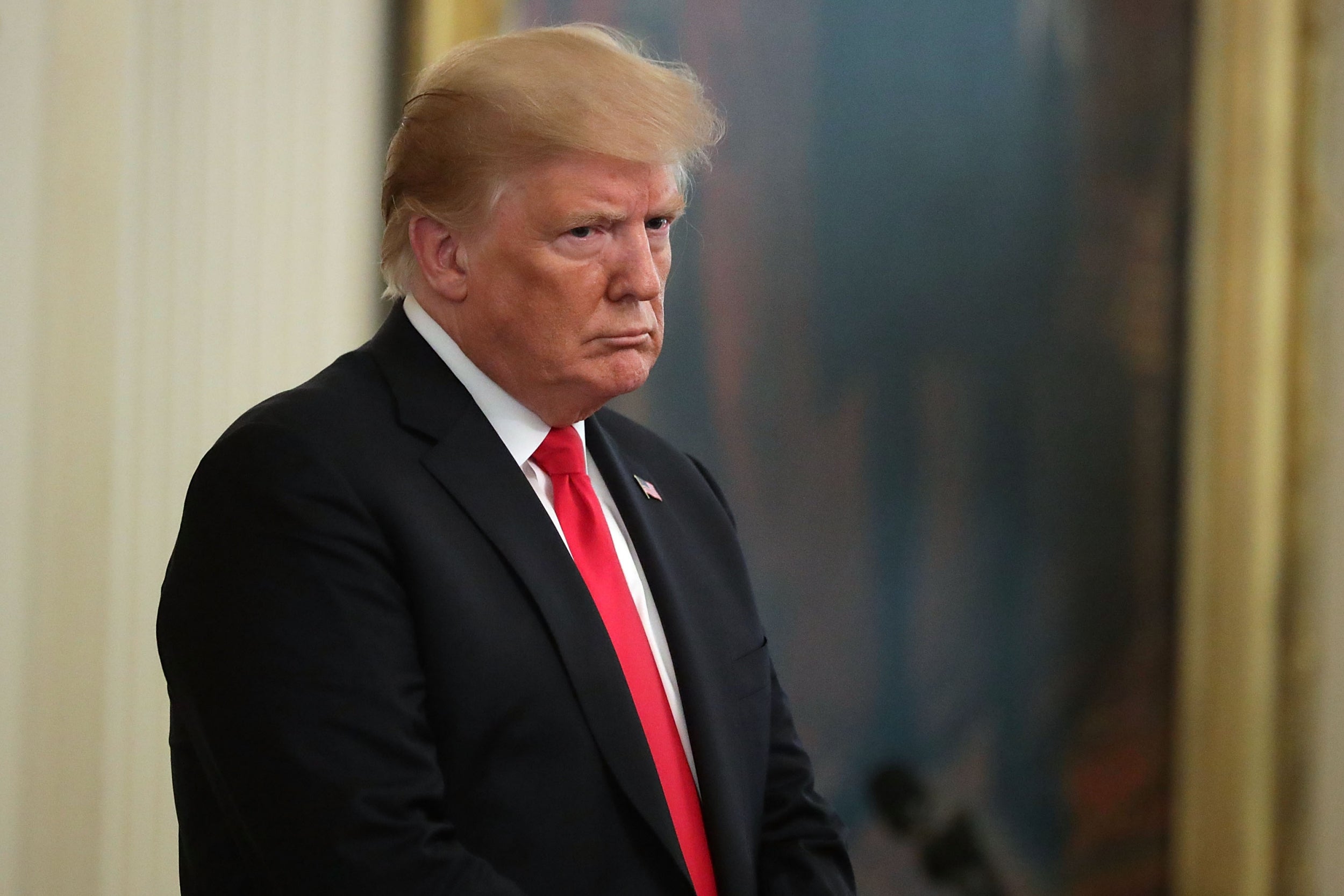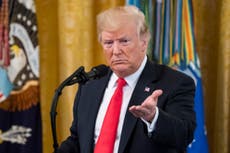President Trump deserves to be impeached although his conviction is very unlikely
Mr Trump could be charged, and he could be tried in the US Congress. Such, however, is the balance of forces in the US Senate that the two-thirds majority required to actually convict Mr Trump would not be available under any foreseeable circumstances

Well, we knew Donald Trump was a bully, but this is ridiculous.
His threat, masquerading as a piece of a news analysis, is that financial markets would “crash” if the Democrats impeached him. As if they would be doing it for larks or with no evidence to support their case. The impeachment process, if it comes to that, will be surely a result of the reckless misbehaviour of this gigantically spoiled and foolish man.
It was an extraordinary remark, even by this president’s standards, because of course it also implies that the reaction to his impeachment would be so disruptive and destructive that investors in dollar assets would take fright and sell, sell, sell. If they did do that, millions of Americans and millions of others invested in American assets in pension funds and investments throughout the world would see their hard-won personal savings devalued through spite. That is what we might term the Trump effect, following on from the Trump market crash, the Trump trade war and, very likely, precipitating a Trump recession. In which case Mr Trump will have made “America Poor Again”. Not a winning slogan.
President Trump certainly deserves to be impeached. His conviction is altogether less likely.
From what we know already, and the evidence that he paid off former lovers during the 2016 presidential election campaign – a plain breach of the law – and from other claims and allegations, a substantial body of crimes amounting to “high crimes and misdemeanours” could be amassed. The lawyers could argue about whether the constitutional arrangements apply to actions that took place before an individual assumes high office; and what constitutes a high crime and misdemeanour, but the possibility is certainly there.
Mr Trump claims that a president who is doing a “great job” – he gives himself an A plus – cannot be impeached, which is certainly not a condition that appears in the constitution of the United States. Mr Trump could be charged, and he could be tried in the US Congress. Such, however, is the balance of forces in the US Senate that the two-thirds majority required to actually convict Mr Trump would not be available under any foreseeable circumstances. Only, say, the most heinous and incontrovertible evidence of collusion, or treason, with the Russians would be sufficient to unseat him and see the early inauguration of president Pence.
During such a period of political instability investors might well add a “risk premium” to their American investments, but it might not amount to very much. Indeed, given Mr Trump’s taste for trade wars with China and others – an economically disastrous policy and damaging to many American-based companies – they might welcome the departure of president Trump and the arrival of a more traditional Republican as the chief executive of America.
We have not heard the last, then – with or without impeachment – of Mr Trump’s interference in economic policy. The president has a habit of playing fast and loose with the usual conventions surrounding economic policy.
Only this week he took the unprecedented step of attacking the chair of the Federal Reserve, Jerome “Jay” Powell. It might have been more understandable if Mr Powell were plainly some sort of Democrat stooge. He is not, however. Quite apart from his distinguished credentials as an academic and a central banker, Mr Powell was appointed by Mr Trump himself only last February.
Mr Trump may well have a grievance, in that he thought he was hiring a “cheap money man”, whereas Mr Powell seems intent on raising interest rates. However, Mr Powell is not the only member of the policymaking arm of the Federal Reserve, the Federal Open Market Committee, and he and his fellow monetary policymakers are entitled to their independence.
Without that, then, the chances are that America would suffer higher inflation than it otherwise would, and market rates and “risk premia” would rise accordingly. Mr Trump has been around finance long enough to realise that you cannot buck the market; but his ego and arrogance suggest that he believes himself exempt from that iron law. At the Jackson Hole summit of central bankers this weekend, Mr Powell could remind Mr Trump of the risks he is running, and their counterproductive effects.
And so another conventional of American policy falls victim to Mr Trump’s iconoclastic, bombastic ways. Economic policy, thus, joins policy on Israel, Iran, the media, relations with Nato, political campaigning and much else on the scrapheap. America’s fundamental safeguards of liberty and independent institutions, enshrined in the constitution, should still be strong enough to withstand the strains, but the 45th president is certainly testing them as never before. The reality, perhaps now dawning as the precise conditional arrangements are scrutinised, is that impeachment won’t stop him. A sound defeat for Republicans in the midterm elections in November might have more effect. They will be a referendum on impeachment; it will up to American voters to do the right thing.


Join our commenting forum
Join thought-provoking conversations, follow other Independent readers and see their replies